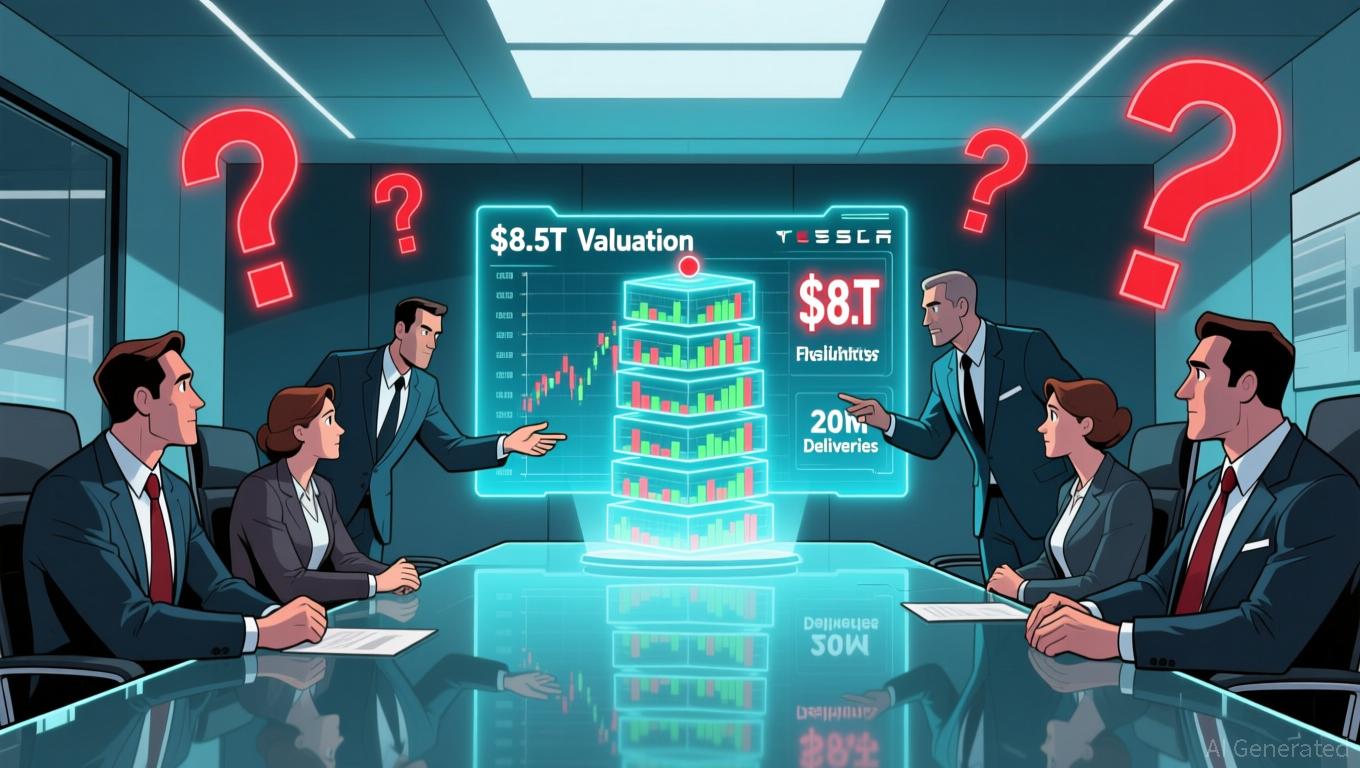Tesla’s $1 Trillion Musk Deal: Strategic Move to Keep CEO or Example of Excessive Corporate Power?
- Tesla shareholders approved a $1 trillion compensation package for Elon Musk, tied to aggressive targets like $8.5 trillion valuation and 20 million vehicle deliveries. - Critics call the package excessive, while Tesla defends it as critical to retain Musk amid his SpaceX, xAI, and Trump administration commitments. - The Texas-based approval bypasses Delaware's strict governance rules, sparking debates over "race to the bottom" in corporate accountability. - Skeptics question feasibility of targets, with
At Tesla's annual meeting in Austin, Texas, shareholders gave their approval to a historic $1 trillion pay package for CEO Elon Musk, with more than three-quarters of votes in favor, as reported by a
This approval signals a significant change in how corporations are governed. After Musk's 2018 compensation plan was twice struck down by Delaware courts, Tesla moved its incorporation to Texas, where business laws are more flexible, the Los Angeles Times reported. This shift allowed Tesla's board to avoid Delaware's tough oversight on shareholder disputes, sparking concerns about a "race to the bottom" among states with looser corporate regulations, as noted by
Musk's latest pay plan is designed to reward long-term results, requiring him to hit a series of performance milestones to receive shares, according to the MarketWatch article.

This approval also brings attention to wider legal and regulatory issues. Delaware's Supreme Court is preparing to review a statute that redefined "controlling stockholder," a decision that could reshape corporate governance across the country, according to a
Musk, meanwhile, highlighted the compensation plan's importance for Tesla's AI and robotics goals. During the shareholder meeting, he said the package would help the company "eliminate poverty by expanding human services" and make Optimus humanoid robots the next revolutionary technology, as reported by the Los Angeles Times. However, his involvement in politics—including a brief role in the Trump administration—has raised concerns about his focus, with governance experts like Nell Minow calling him a "part-time CEO," according to a
This decision highlights a growing pattern: companies are increasingly using state laws to justify unprecedented executive pay. As Tesla's move sets a precedent, it prompts important questions about oversight and the direction of corporate governance in a patchwork legal system, The Guardian observed.
---
Disclaimer: The content of this article solely reflects the author's opinion and does not represent the platform in any capacity. This article is not intended to serve as a reference for making investment decisions.
You may also like
Dash Falls 17.83% Within a Day as Analysts Lower Targets and Major 2026 Expenditure Announced
- DoorDash (DASH) fell 17.83% in 24 hours amid analyst target cuts and 2026 spending plans. - Goldman Sachs and others reduced price targets, averaging $286.55 (41.83% upside). - Q3 revenue rose 27% to $3.4B, but near-term profits lagged due to costs; CEO Tony Xu plans AI/robot investments. - 2026 spending will increase by hundreds of millions to integrate Deliveroo into a global tech stack.
SOL Price Drops Sharply — BSOL ETF Debut Fails to Boost Momentum

Analyst Explains Why Bitcoin Top Still Expected and Why Altseason Has Not Yet Arrived

Kazakhstan to Launch $1 Billion National Cryptocurrency Reserve Fund by 2026 to Strengthen Digital Finance Sector
